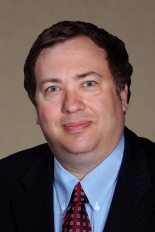
ATLANTA, Georgia (Press Release) – In his first public appearance since joining the U.S. peace process team, David Makovsky spoke at the JCPA Plenum last weekabout the need for a two-state solution and the prospects for peace. The Plenum is the annual conference for Jewish community leaders and representatives from 125 Jewish Community Relations councils and 16 national Jewish agencies to gather, learn, debate, and vote on consensus policy. In addition to Makovsky, the Plenum delegates were joined by Presiding Bishop Katherine Jefferts Schori, the head of the Episcopal Church; Abraham Foxman, National Director of the Anti-Defamation League, who gave his first remarks since announcing his retirement; Jewish Federations of North America CEO Jerry Silverman; and many others.
In his update to the Plenum, Makovsky began by laying out the benefits of peace for Israel. Concerns like Iran and religious extremism are shared by Arabs and Israelis, and without the Palestinian conflict to divide them, they could begin to cooperate more. More important is the need to avoid a binational state. Support for two states for two peoples has been a bipartisan American goal for many years, Makovsky said, and Israeli Prime Minister Netanyahu has said that negotiating a peace that avoids a binational state is critical to the future of a Jewish state. Netanyahu even visited the grave of Herzl to emphasize the connection between peace and Zionism.
On the Palestinian side, Makovsky noted, Mahmoud Abbas seems to be equally serious. He has demonstrated a commitment to non-violence, kept his word about not turning to the UN while talks are ongoing, and has cooperated with Israeli security forces in going after Hamas such that they are no longer a functioning security threat in the West Bank. Israel has asked for deeds, not words, and these are deeds. The cost of failure for Abbas is there as well, as he understands that Palestinians will never experience self-determination without two states for two people.
Two states for two peoples will require a sense of shared security, said Episcopal Church Presiding Bishop Katherine Jefferts Schori in an interfaith conversation with JCPA President Rabbi Steve Gutow. Recently returned from a trip to Jordan, Bishop Schori laid out a vision of peace based on the belief that one’s security depends on the security of all people.
The interfaith discussion focused, as well, on points of commonality between the two communities and the need to, as Bishop Schori said, keep diverse communities communicating. A mutual understanding of each other’s religious traditions reveals shared commitments to repairing our immigration system and ending hunger – an issue both agreed was a major civil rights issue of the day – as well as equality for gays, lesbians, and transgender individuals.
On LGBT issues, Rabbi Gutow noted that Bishop Schori was an early leader. “I begin with the understanding from Genesis that it is not good for the human being to be alone,” she said. But she also emphasized consensus as essential to ensuring a good life for all, saying “Truth is more fully known in a diverse community than in an individual.” Rabbi Gutow, as well, emphasized consensus, referencing last year’s Plenum discussion on gay marriage and the JCPA’s leadership in combating discrimination.
Other plenaries focused on the future of the Jewish community. Jane Eisner, editor-in-chief of The Forward, moderated a conversation between JFNA CEO Gerrold “Jerry” Silverman, Elana Kahn-Oren, Director of the Milwaukee JCRC and Rabbi Deborah Waxman, President of the Reconstructionist Rabbinical College.
Paraphrasing Shimon Peres, Silverman said our greatest strength and weakness is that “we are a people of dissatisfaction,” always striving. Kahn-Oren noted that our community’s leaning toward what can be is a case for community relations. It is important to build community partnerships, not just out of the fear that we were victims once and could be again, but because this work of community building is our destiny as Jews. The Jewish community has so much to teach about our activist sensibility, said Waxman. Our commitment to tikkun olam is one that has carried across generations, and that strength should influence our work in reaching out to younger Jews.
When we engage millennials with the benefits of Jewish life, we all win, said Silverman. We do our work not just as another social justice organization, but as Jews, said Kahn-Oren. And the CRCs are particularly well suited for connecting young Jews with Jewish life, said Silverman, citing the success of the Boston CRC in following up with Birthright alumni.
The challenges of the Pew study were discussed by Abe Foxman, National Director of the ADL, who received the Albert D. Chernin Award. After warning of the costs to world Jewry if America retreated from the world stage, Foxman said that crucial to stemming the estrangement of today’s Jewish youth from the community is stopping what he calls the ignorance of today’s youth. It is incumbent on us through programs like Birthright to explain why our concerns matter.
Others honored at the JCPA Plenum include Atlanta leaders Leon Goldstein, Melanie Nelkin, and Lois Frank who were each recognized with the Tikkun Olam Award for their lifetime of work making the world a better place.
The delegates also voted to approve new policies on human trafficking, the minimum wage, reproductive rights, inclusion and disabilities, international LGBT discrimination, and increasing government support for public higher education.
JCPA, the public affairs arm of the organized Jewish community, serves as the national coordinating and advisory body for the 14 national and 125 local agencies comprising the field of Jewish community relations.